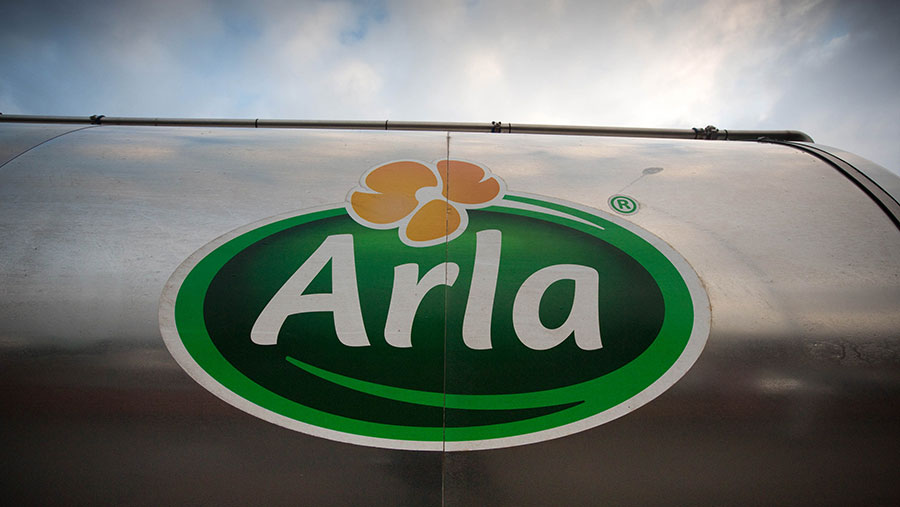Arla to pay farmers for environmental sustainability from 2023
 © Tim Scrivener
© Tim Scrivener The milk price paid to Arla members will depend increasingly on meeting new environmental targets.
From August 2023, up to 2.4 euro cents/kg (2.2p/litre) will relate to how well the farmers score against sustainability targets.
This is on top of the 1 euro cent/kg (0.9p/litre) currently paid to 93% of Arla producers for supplying climate check data.
The exact price paid to producers will vary depending to what degree 19 targets are met.
See also: Tentative dairy markets hover around 50p/litre mark
Under the scheme, the average farm business is estimated to be in line to receive an annual payment of €26,000 (£22,700) for activities connected to environmental sustainability.
Taking current milk prices as a base, the new sustainability element will represent about 7% of the total farmgate milk price.
Arla chairman Jan Toft Norgaard said: “We need to lower our carbon footprint on farms; with the incentive model Arla owners are taking matters into their own hands as frontrunners on that transition.”
The payments Arla farmers receive for the milk will depend not only on fat, protein, and quality, but on their actions around sustainability, he said.
At least €270m is due to be paid to producers through this sustainability incentive in the first year alone, with the co-operative setting aside up to €500m annually for rewarding climate activities on farm.
The first monthly payment under the scheme is due to be made in August 2023 and will be based on data from July production.
Environmental measures
Producers who take up the scheme will be scored against 19 criteria using a points-based system.
Arla chief executive Peder Tuborgh said: “We know that these 19 levers will scientifically drive carbon reduction on farm, and that is why they have been chosen. Farmers understand these levers and we will also work with farmers to educate them. When the programme really opens up, everybody will be ready to grab the opportunity.”
There will be a total of 80 points available for each producer in 2023, with plans to introduce a further 20 points in the coming years.
The key areas for scoring points are feed efficiency, fertiliser use, land use, protein efficiency, animal robustness, manure handling, use of sustainable feed, use of renewable electricity, biodiversity, and carbon farming activities.
These targets are designed to be in line with the company’s wider long-term objective of reducing greenhouse gas emissions by 30% for each tonne of milk by 2030.
Payment rates
Each of the 80 points is worth an additional 0.03 euro cents/kg of milk. On average, producers are expected to receive about 39 points, which equates to a payment of 1.17 euro cent/kg of milk (1.06p/litre equivalent), not including the 1 euro cent/kg (0.9p/litre) paid for submitting climate check data.
Farmers can update the number of points they qualify for each quarter and log any new improvements made in meeting the different environmental sustainability criteria.
Each farm will be audited annually, with an adviser visiting the farm to check the points are allocated correctly.
How will it work in the UK?
Arla has about 2,100 British farmer owners and almost all of these will be involved in the new incentive model.
UK agriculture director Paul Savage said: “All of our prices are subject to a currency smoothing mechanism that we have in the UK, whether that’s for fat or protein, and this will be no different.”
The initiative was an opportunity for farmers to increase their points and milk cheque on a monthly basis by making improvements on farm, he said.
There would still be a conventional price and an organic price, and the environmental payments would work across both systems.
Graham Wilkinson, vice-president of agriculture at Arla Foods UK, said the co-operative had developed a model that fitted all farming systems, all farming types, and different geographical regions.
“You can see from a biodiversity and carbon farming element where we are really starting to recognise those areas which lean more towards an organic system,” he said.
